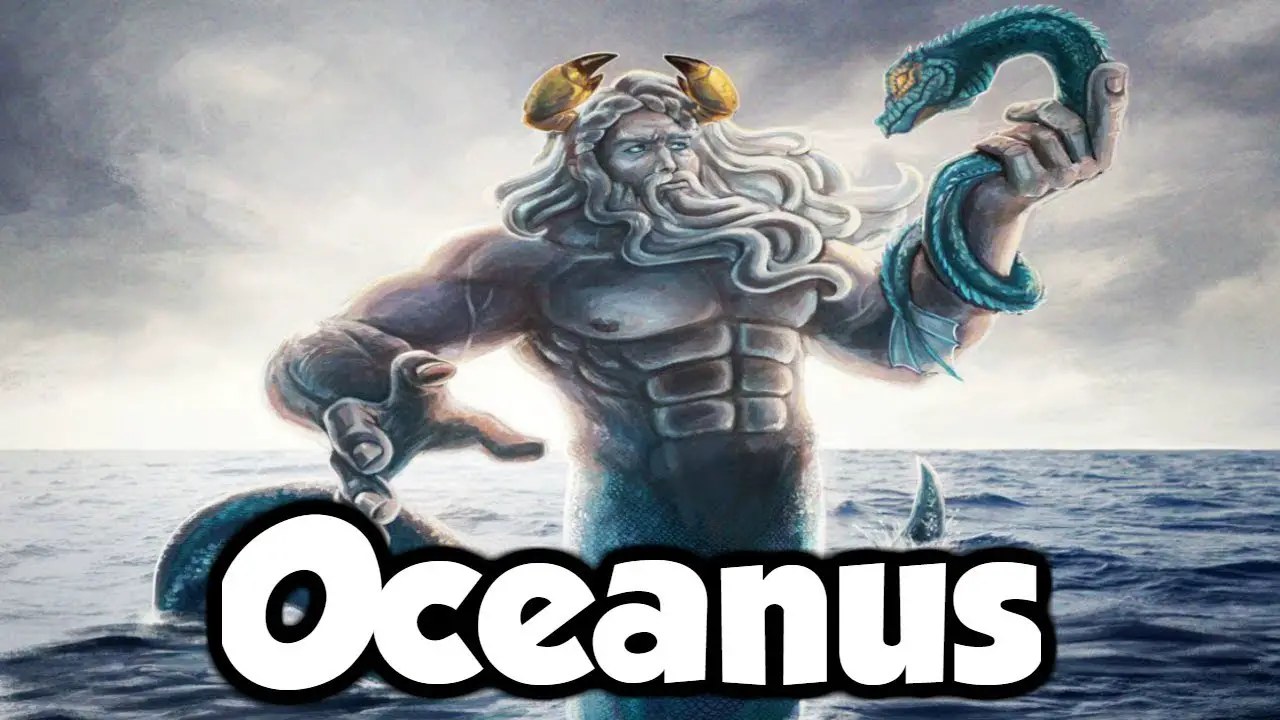
Oceanus was a titan in Greek mythology who was the personification of the vast, endless waters that surrounded the world. He was one of the twelve Titans and played an important role in the creation of the world.
The Story of Oceanus
In some myths, Oceanus was also associated with the afterlife. It was believed that the dead would cross over the River Styx, which was one of the rivers associated with the underworld, on their way to the afterlife. Oceanus was sometimes seen as the god who ruled over this river.
Details about Oceanus’ Family and Children
According to Greek mythology, Oceanus was born to Uranus and Gaia, along with his eleven siblings, the Titans. While his siblings were associated with various aspects of the natural world, Oceanus was associated with the vast, endless waters that surrounded the world.
Oceanus was married to his sister, Tethys, and together they had a large family of children, known as the Oceanids. The Oceanids were nymphs who were associated with various bodies of water, including rivers, lakes, and springs. The number of Oceanids varies depending on the source, but they are generally considered to be in the thousands.
Oceanus and his family played an important role in the creation of the world. According to some myths, they helped to separate the sky from the earth and played a part in the creation of the first creatures.
Some of the most famous Oceanids include:
- Amphitrite: Amphitrite was the wife of Poseidon and the queen of the sea.
- Doris: Doris was the mother of the Nereids, a group of sea nymphs.
- Metis: Metis was the mother of Athena, the goddess of wisdom and war.
- Electra: Electra was the mother of Dardanus, the founder of the city of Troy.
Oceanus’ children were also associated with various bodies of water, and their names often reflected the features of the water they were associated with. For example, some Oceanids were associated with the color of the water, such as Cyanee (associated with blue water) and Leuce (associated with white water).
10 Myths and Facts About Oceanus in Greek Mythology
- Myth: Oceanus was the ruler of the seas. Fact: This is not entirely true. While Oceanus was associated with the vast, endless waters that surrounded the world, he was not the ruler of the seas. This role was held by the god Poseidon.
- Myth: Oceanus was married to Gaia. Fact: This is not true. While Oceanus was one of Gaia’s children, he was not married to her. He was married to his sister, Tethys.
- Myth: Oceanus was the father of all sea creatures. Fact: This is not true. While Oceanus was associated with the waters of the world, he was not directly responsible for the creation of sea creatures.
- Myth: Oceanus was immortal. Fact: This is not entirely true. While Oceanus was a titan, a powerful god-like figure, he was not immortal. He was eventually defeated by the Olympian gods, who took control of the universe.
- Myth: Oceanus was the god of the River Styx. Fact: This is true. In some myths, Oceanus was associated with the River Styx, which was one of the rivers associated with the underworld.
- Myth: Oceanus was a kind and compassionate figure. Fact: This is not entirely true. While Oceanus was associated with the life-giving power of water, he was also a complex figure, who could be moody and unpredictable.
- Myth: Oceanus was associated with the color blue. Fact: This is not entirely true. While Oceanus was associated with water, he was not directly associated with the color blue. The color blue was more commonly associated with the god of the sea, Poseidon.
- Myth: Oceanus played an important role in the creation of the world. Fact: This is true. According to some myths, Oceanus helped to separate the sky from the earth and played a part in the creation of the first creatures.
- Myth: Oceanus was the father of all nymphs. Fact: This is not true. While Oceanus was the father of a large family of children, known as the Oceanids, they were specifically nymphs who were associated with various bodies of water.
- Myth: Oceanus was a symbol of the power and mystery of the natural world. Fact: This is true. Oceanus’ symbolism in Greek mythology represents the vastness and mystery of the natural world and the importance of water in the cycles of life and death.
Symbolism of Oceanus in Greek Mythology
One of the main symbols associated with Oceanus is water. As the personification of the vast, endless waters that surrounded the world, Oceanus represents the power and mystery of the natural world. The oceans and seas have always been a source of fascination and fear for humans, and Oceanus’ symbolism captures this sense of wonder and awe.
Another important symbol associated with Oceanus is life. Water is a vital element for all living things, and the vast oceans and seas are home to a vast array of creatures. In this sense, Oceanus represents the life-giving power of water and the importance of preserving the natural world.
Oceanus was also associated with the cyclical nature of life and death. In Greek mythology, the cycle of life and death was seen as a fundamental part of the natural world, and Oceanus’ role as the personification of the vast, endless waters represented this idea. The oceans and seas are constantly in motion, and the cycles of the tides and currents reflect the ebb and flow of life.
In some interpretations, Oceanus’ symbolism extends beyond just water and life. Some see him as a symbol of the unknown and the mysteries of the universe. His vast, endless waters represent the vastness of the universe and the mysteries that lie beyond our understanding.